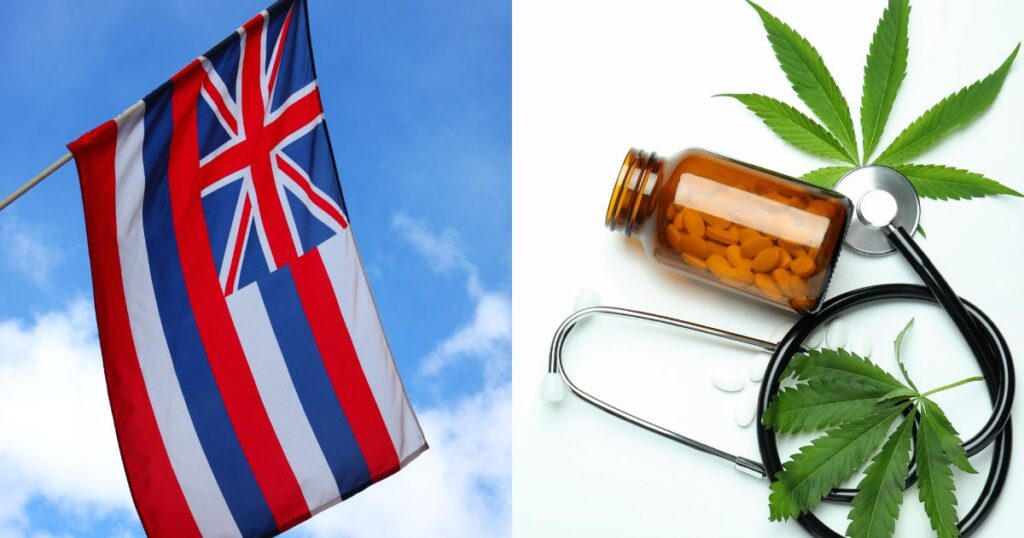The Hawaii Department of Health recently made an announcement that signals a major shift in how cannabis is viewed as legitimate medicine. For the first time, the state agency is offering free accredited continuing medical education courses on medical cannabis to licensed healthcare providers throughout Hawaii.
This initiative represents far more than just another educational program—it marks a moment where state government health officials are actively working to bridge the knowledge gap that has existed for decades between medical professionals and cannabis therapeutics.
This development comes at a time when cannabis acceptance is rapidly evolving across the United States. With 40 states now having legalized cannabis for medical use, healthcare providers are increasingly encountering patients who either use cannabis medicinally or could benefit from its therapeutic properties.
Yet many of these same providers received little to no education about cannabis during their medical training, creating a significant disconnect between patient needs and professional knowledge.
Breaking Down Barriers Through Evidence-Based Education
The Hawaii Medical Cannabis Course Bundle addresses this educational void through evidence-based curriculum designed to give healthcare providers foundational understanding of the endocannabinoid system and clinical applications of medical cannabis and CBD.
The courses cover essential topics including cannabinoid pharmacology, therapeutic benefits, appropriate dosing strategies, potential side effects, and drug interactions.
Dr. Kenneth Fink, Hawaii’s Department of Health director, talked about the practical necessity of this education in a press release announcing the courses.
“With more than 120,000 patients having enrolled in Hawaii’s medical cannabis program since its inception and about 30,000 patients currently registered, healthcare providers will likely encounter patients using cannabis for medical purposes,” he stated in the press release. “Recognizing potential side effects and drug interactions will help improve patient safety.”
The program includes a three-credit course on medical cannabis fundamentals, a two-credit course focusing specifically on CBD in clinical care, and additional modules covering Hawaii’s medical cannabis regulations.
What makes this particularly significant is that these courses are fully accredited for all healthcare providers, lending institutional credibility to cannabis education that was largely absent from traditional medical curricula.
A Long-Overdue Educational Revolution
The significance of a state health department taking this proactive stance cannot be overstated. For generations, medical and nursing schools largely excluded cannabis from their pharmacology courses, despite the plant’s extensive therapeutic history.
This omission wasn’t based on lack of efficacy or safety data—it was primarily due to social stigma and federal prohibition that classified cannabis as a Schedule I substance with “no accepted medical use.”
This educational gap left countless healthcare providers unprepared to guide patients who were already using cannabis or who might benefit from it. Many physicians found themselves in the uncomfortable position of having patients ask about medical cannabis while lacking the knowledge base to provide informed guidance.
Some providers simply avoided the topic entirely, while others relied on outdated information or personal biases rather than scientific evidence.
The endocannabinoid system, which these new courses will teach healthcare providers about, is actually the largest signaling system in the human body. Discovered in the 1990s, this system plays crucial roles in regulating pain, inflammation, sleep, mood, appetite, and immune function.
Yet many healthcare providers working today received their training before this system was fully understood or incorporated into medical education.
Scientific Evidence Supporting Medical Cannabis
The timing of Hawaii’s educational initiative aligns with mounting scientific evidence supporting cannabis as a legitimate therapeutic option.
The FDA has approved several cannabinoid-based medications, including Epidiolex for severe epilepsy, Marinol for chemotherapy-induced nausea and HIV-related appetite loss, and Cesamet for severe nausea and vomiting.
Research demonstrates cannabis effectiveness in managing chronic pain, multiple sclerosis spasticity, certain seizure disorders, and chemotherapy-induced side effects.
These aren’t fringe applications—they represent conditions affecting millions of Americans who have often exhausted conventional treatment options without finding adequate relief.
Hawaii’s approach acknowledges both the therapeutic potential and the risks associated with medical cannabis. The courses will address important safety considerations, particularly for vulnerable populations including immunocompromised individuals, pregnant and breastfeeding women, and those with mental health histories.
Rare but serious adverse effects like cannabinoid hyperemesis syndrome and acute psychosis will also be covered, ensuring providers can make well-informed recommendations.
Advancing Medical Cannabis as Mainstream Medicine
This educational initiative comes on the heels of Hawaii expanding its medical cannabis program through new legislation signed by Governor Josh Green.
The expanded program allows healthcare providers to recommend cannabis for any condition where benefits would likely outweigh risks, moving beyond the previous list of specific qualifying conditions.
The combination of expanded access and enhanced provider education creates a more rational, medically-supervised approach to cannabis therapeutics.
Rather than forcing patients to seek cannabis recommendations from providers who may lack adequate knowledge, this system ensures that healthcare professionals have the tools they need to make informed decisions about cannabis therapy.
The state’s commitment extends beyond just offering courses. By making the first 200 registrations free, Hawaii is removing financial barriers that might prevent providers from accessing this crucial education.
A Model for Other States
Hawaii’s proactive approach could serve as a model for other states grappling with similar challenges. As medical cannabis programs continue expanding nationwide, the need for educated healthcare providers becomes increasingly urgent.
Patients deserve providers who understand cannabis pharmacology, can identify appropriate candidates for treatment, recognize potential interactions, and monitor for adverse effects.
The alternative—providers making recommendations about substances they don’t fully understand—serves no one’s interests. Uninformed recommendations can lead to suboptimal outcomes, unnecessary side effects, or missed opportunities for effective treatment.
Conversely, providers who refuse to engage with medical cannabis may force patients to seek care elsewhere or self-medicate without professional guidance.
Looking Toward the Future
The Hawaii Department of Health’s cannabis education initiative represents more than just continuing education—it signals a fundamental shift in how government health agencies view cannabis.
By actively promoting evidence-based cannabis education, Hawaii is treating cannabis like any other therapeutic intervention that healthcare providers should understand.
This approach acknowledges the reality that cannabis has moved beyond the margins of medicine. With growing scientific evidence, expanding state programs, and millions of patients using cannabis therapeutically, pretending this plant doesn’t exist in healthcare settings is no longer tenable.
The courses also address an important equity issue. Patients shouldn’t have to choose between staying with trusted healthcare providers who lack cannabis knowledge or seeking new providers specifically for cannabis recommendations.
By educating existing providers, Hawaii is ensuring that patients can receive comprehensive, integrated care that considers all their therapeutic options.
This initiative represents exactly the kind of progressive, evidence-based approach needed to normalize cannabis in medical settings. By treating cannabis education as essential professional development rather than optional specialty training, Hawaii is leading the way toward more informed, compassionate patient care.
The success of this program could influence other states to develop similar initiatives, potentially creating a new standard for cannabis education in healthcare.
As more providers become educated about cannabis therapeutics, patients across the country will benefit from more informed, evidence-based guidance about this increasingly important treatment option.























